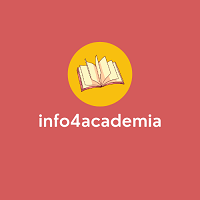Design of Accounting Learning Model Through the Positive Divergent Stimulation Under Mental Accounting Dilemma
Abstract
The nature of scientific accounting significantly influences cognitive processes in individuals studying the discipline. This study examines how cognitive mental processes, specifically mental accounting, shape one's ability to approach accounting concepts with innovation. Within accounting education, the Creative Problem Solving (CPS) technique, known for stimulating divergent thinking, is explored as a means to enhance cognitive creativity. This model provides learners with tools to tackle challenges, generate new ideas, and navigate transformative changes. The research emphasizes the crucial role of mental accounting in achieving success in divergent thinking in the context of accounting. Mental accounting can manifest both positively and negatively, influenced by various learning approaches. Our investigation focuses on how accounting students can cultivate positive divergent thinking amidst cognitive mental accounting dilemmas, informed by an extensive literature review. The study concludes with the development of a model that highlights the cultivation of positive divergent thinking within cognitive mental accounting challenges.
Keywords
Full Text:
PDFReferences
Bass, B. M., & Avolio, B. J. (1993). Transformational leadership and organizational culture. Public Administration Quarterly, 17, 112-121.
Gareis, E. (2012). Intercultural friendships: Effects of home and host region. Journal of International and Intercultural Communication, 5, 309-328. doi:10.1080/17513057.2012.691525
Hayes, R. L., & Lin, H. (1994). Coming to America: Developing social support systems for international students. Journal of Multicultural Counseling and Development, 22, 7-16. doi:10.1002/j.2161-1912.1994.tb00238.x
Hayes, A., & O’Brien, R. (2021). Earmarking risk: Relational investing and portfolio choice. Social Forces, 99(3), 1086-1112. doi:10.1093/sf/soaa025
Hahnel, U. J. J., Chatelain, G., Conte, B., Piana, V., & Brosch, T. (2020). Mental accounting mechanisms in energy decision-making and behaviour. Nature Energy, 5, 952-958. doi:10.1038/s41560-020-00704-6
Institute of International Education. (2013). International students at all institutions, 2001/02-2012/13. Retrieved from http://www.iie.org/opendoors
Johnson, L. R., & Sandhu, D. S. (2007). Isolation, adjustment, and acculturation issues of international students: Intervention strategies for counselors. In H. Singaravelu & M. Pope (Eds.), A handbook for counseling international students in the United States (pp. 13-35). Alexandria, VA: American Counseling Association.
Komiya, N., & Eelss, G. T. (2001). Predictors of attitudes toward seeking counseling among international students. Journal of College Counseling, 4, 153-160.doi:10.1002/j.2161-1882.2001.tb00195.x
Kuo, W. H., & Tsai, Y. M. (1986). Social networking, hardiness and immigrant's mental health. Journal of Health and Social Behavior, 27, 133-149. doi:10.2307/2136312 Muehlbacher, S., & Kirchler, E. (2019). Individual differences in mental accounting.
Frontiers Psychology, 10. doi:10.3389/fpsyg.2019.02866
Manurung, S. L., Elfitra, E., & Frisniory, S. (2019). Developing integrated creative problem solving (CPS) textbook for logic and set. Journal of Physics: Conference Series, 1188 (1). doi:10.1088/1742-6596/1188/1/012040
Shi, B., Wang, L., Yang, J., Zhang, M., and Xu, L. (2017) Relationship between Divergent Thinking and intelligence: An empirical study of the threshold hypothesis with Chinese children. Frontiers Psychology, 8. doi: 10.3389/fpsyg.2017.00254
Taylor, C. L., & Zaghi, A. E. (2022). The interplay of ADHD characteristics and executive functioning with the GPA and divergent thinking of engineering students: A conceptual replication and extension. Frontiers Psychology, 13.doi:10.3389/fpsyg.2022.937153
Yang, J., & Zhao, X. (2021). The effect of creative thinking on academic performance: Mechanisms, heterogeneity, and implication. Thinking Skills and Creativity, 40, 100831. doi:10.1016/j.tsc.2021.100831
DOI: https://doi.org/10.32535/ijafap.v6i3.1885
Refbacks
- There are currently no refbacks.
Copyright (c) 2023 Satia Nur Maharani, Setya Ayu Rahmawati

This work is licensed under a Creative Commons Attribution-NonCommercial-ShareAlike 4.0 International License.
International Journal of Accounting and Finance in Asia Pacific (IJAFAP)
ISSN 2684-9763 (Print) | ISSN 2655-6502 (Online)
DOI Prefix: 10.32535 by CrossRef
Published by AIBPM Publisher
JL. Kahuripan No. 9, Hotel Sahid Montana, Malang, Indonesia
Email: adm.ijafap@gmail.com
Phone: +62 341 366222
Website: https://ejournal.aibpmjournals.com/index.php/IJAFAP
Governed by
Association of International Business and Professional Management
Email: admin@aibpm.org
Website: https://www.aibpm.org/
Licensing Information

International Journal of Accounting and Finance in Asia Pacific (IJAFAP) is licensed under a Creative Commons Attribution-NonCommercial-ShareAlike 4.0 International License.
















